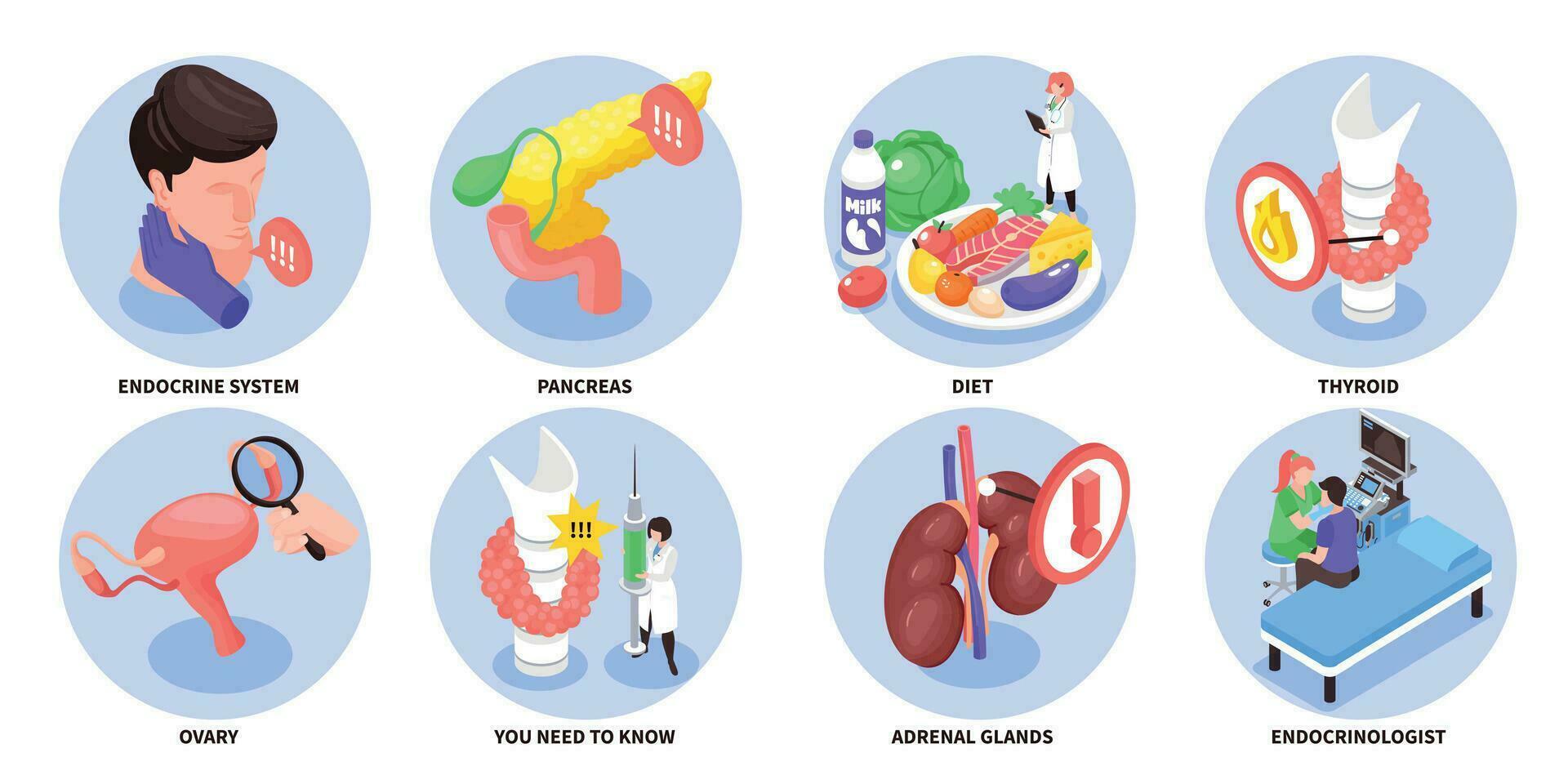Endocrinologist in Liberty Hill: Dedicated Experts for Hormonal Wellness
Wiki Article
The Science Behind Hormone Regulation: Insights From an Endocrinologist
The Scientific Research Behind Hormonal Agent Policy: Insights From an Endocrinologist uses a thorough exploration of the detailed processes associated with hormone policy. Written by a knowledgeable endocrinologist, this insightful guide looks into the interesting globe of hormones and their vital duty in keeping physical functions. From the basics of hormone production to the facility feedback loopholes that control their launch, this publication provides a precise assessment of the devices at play. In addition, it discovers the numerous factors that can disrupt hormone equilibrium and supplies valuable understandings right into just how these imbalances can be diagnosed and dealt with. Whether you are a medical professional seeking a deeper understanding of endocrine feature or a specific curious about learning more about the science behind hormonal agent law, this publication is an indispensable source.Hormonal Agents and Their Functions
Hormones play essential duties in the policy and coordination of numerous physiological processes within the body. These chemical carriers are created by endocrine glands and are released right into the bloodstream, where they take a trip to target cells or organs to exert their results. The functions of hormonal agents are diverse and encompass nearly every aspect of human physiology.One of the primary features of hormonal agents is to keep homeostasis, which is the stable internal atmosphere required for the body to function efficiently. Insulin, a hormone created by the pancreas, manages blood sugar degrees by promoting the uptake and storage space of sugar in cells. One more hormone, cortisol, helps the body react to stress and anxiety by raising blood sugar levels and suppressing the immune system.
Hormonal agents additionally play important roles in development and development. Development hormonal agent, created by the pituitary gland, promotes the development of tissues and bones, while thyroid hormonal agents control metabolic rate and influence the growth of the nervous system - Best endocrinologist in texas. Furthermore, reproductive hormonal agents, such as estrogen and testosterone, are in charge of the growth and maintenance of secondary sexual characteristics and the regulation of the menstruation
The Endocrine System: A Review
Playing an important duty in the regulation and coordination of physiological processes, the endocrine system is a complicated network of glands that generate and launch hormones into the bloodstream. These glands, consisting of the hypothalamus, pituitary gland, thyroid gland, adrenal glands, pancreatic, ovaries, and testes, secrete hormones that act as chemical carriers, influencing various physical functions. The endocrine system functions in conjunction with the nervous system to control and preserve homeostasis, ensuring that the body's inner setting continues to be steady.The hypothalamus, located in the brain, is taken into consideration the master regulator of the endocrine system. It generates hormonal agents that prevent the launch or stimulate of hormonal agents from the pituitary gland, which consequently controls the task of various other endocrine glands. The thyroid gland, located in the neck, generates hormonal agents that control metabolic rate and power equilibrium. The adrenal glands, located atop the kidneys, generate hormonal agents that help the body reply to stress and manage high blood pressure.

Regulation of Hormone Manufacturing
The policy of hormone production entails a complicated interplay between numerous glands and comments systems within the endocrine system. Hormones are chemical carriers that play an essential function in preserving homeostasis and collaborating different physiological procedures in the body. The manufacturing of hormonal agents is firmly controlled to make sure the correct functioning of the endocrine system.The hypothalamus, situated in the mind, functions as a key regulatory authority of hormone manufacturing. It launches hormonal agents that boost or prevent the production of hormones by the pituitary gland, which is frequently referred to as the "master gland" of the endocrine system. The pituitary gland, consequently, generates hormonal agents that act upon various target glands throughout the body, boosting them to create and release specific hormones.
Feedback devices likewise play a crucial duty in hormone guideline. There are two types of comments mechanisms: negative comments and favorable feedback. Unfavorable feedback helps maintain hormone levels within a narrow range. When hormonal agent levels climb above or drop listed below the optimum array, the body sets off devices to either reduction or boost hormonal agent manufacturing, respectively, to restore equilibrium. Favorable responses, on the other hand, enhances the manufacturing of hormones in reaction to particular stimulations, such as childbirth.
Feedback Loops in Hormone Guideline
Comments loops play an essential function in the law of hormone manufacturing. These loops entail a collection of communications between the endocrine glands, hormones, and target body organs to keep homeostasis in the body. There are 2 kinds of responses loopholes: negative feedback and positive responses.Adverse feedback is the most usual kind of responses loop in hormonal agent guideline. It functions by noticing the degrees of a hormone in the blood and adjusting hormonal agent production as necessary. When hormonal agent levels climb over a particular threshold, the hypothalamus in the brain indicates the pituitary gland to lower hormone production. This, in turn, reduces the stimulation of the target organ, leading to a decline in hormonal agent secretion. Conversely, when hormonal agent levels drop listed below the threshold, the hypothalamus boosts the pituitary gland to boost hormone manufacturing, bring back equilibrium.
linked here Positive comments loops, on the other hand, amplify hormone manufacturing. This occurs when a hormonal agent stimulates the launch of even more of the exact same hormonal agent, leading to a fast increase in its levels. However, favorable feedback loopholes are less usual in hormone law and are normally associated with certain physiological procedures, such as childbirth and lactation.
Elements Affecting Hormone Equilibrium
Factors affecting hormonal agent equilibrium include nutritional choices, way of life habits, and ecological exposures. These aspects can have a significant influence on the fragile balance of hormones in the body, influencing different physical processes and general wellness.Nutritional selections play a vital duty in hormonal agent regulation. Taking in a balanced diet plan that consists of a selection of nutrients is essential for maintaining hormone equilibrium.
Adequate rest is essential for hormonal agent manufacturing and policy, as interrupted rest patterns can lead to discrepancies. Furthermore, persistent tension can dysregulate the hypothalamic-pituitary-adrenal (HPA) axis, a key player in hormonal agent policy, leading to a waterfall of hormone inequalities.

Final Thought
In conclusion, comprehending the science behind hormone law is vital for keeping overall health and wellness and well-being. Hormones play vital roles in different physical functions, and their production is managed by complex comments loopholes. Elements such as diet plan, way of living, and tension selections can influence hormone balance. By examining and comprehending these systems, we can better understand and handle hormone-related problems, inevitably resulting in enhanced wellness outcomes.The Science Behind Hormone Law: Insights From an Endocrinologist supplies a thorough exploration of the elaborate processes entailed in hormonal agent policy. It produces hormonal agents that boost or prevent the release of hormonal agents from the pituitary gland, which in turn manages the activity of various other endocrine glands. It releases hormonal agents that prevent the production or promote of hormones by the pituitary gland, which is usually referred to as the "master gland" of the endocrine system. The straub urgent care pituitary gland, in turn, my marshfield clinic generates hormones that act on numerous target glands throughout the body, stimulating them to generate and release details hormonal agents.
When hormonal agent degrees climb over a particular threshold, the hypothalamus in the mind indicates the pituitary gland to decrease hormone manufacturing. (Best endocrinologist in texas)
Report this wiki page